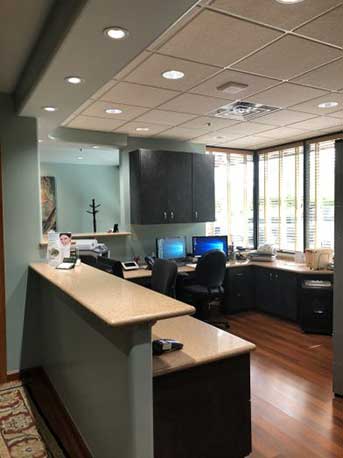Dentist Fear Statistics 2022-2013 and Facts about Dental Anxiety and Phobias
- Over 75% of adults experience dental anxiety or fear
- Pain is a top reason for dental fear
- There is a field of psychiatry devoted to dental phobia
- Past negative dental experiences contribute to dental fear
- Sometimes the sounds and smells in a dental office heighten fear response
- Feeling helpless and embarrassed also makes people fear a dental visit
Studies have demonstrated that dental fear is very real and is a phenomenon experienced by greater than 75% of the adult population to some degree or another. Of those, 5-10% experience a fear so profound, it’s classified as “dental phobia,” which is much more serious than generalized fear. As a result, their health suffers, as this phobia causes them to avoid seeing a dentist for any reason.
Dental Anxiety Statistics
Of all the reasons people give for their dental fear, fear of pain is always at the top of the list. People fear the anesthetic won’t work, they fear they will feel all of the drilling taking place, all of the pulling of a bad tooth or the procedure for implants. Pain is a legitimate fear for most people who hesitate to seek out proper dental care. While there are local anesthetics, people who fear pain generally experience anxiety regarding the injections of anesthetics, and sedation dentistry is costly. So pain is the number one reason given for dental fear.
Dental fear and phobia is so profound there is actually a field of psychiatry devoted to it. It is obscure, however it offers benefits to both patients and dentists. Astonishingly, almost 30% of dental students themselves suffer from dental anxiety! This field of study is designed to assist dentists in learning ways to ease a patient’s fear so they will have dental check-ups more often, leading to better oral health as it teaches dentists the best ways to treat patients with dental fears and phobias.
If you’ve experienced severe pain or had any type of traumatic event happen at a dental visit in your own history, you are far more likely to hesitate prior to scheduling another dental visit. These negative dental visits in the past stay with us long after we leave the dentist’s chair, and if a dentist hurt us before, we tend not to trust any dentist not to hurt us again.
Even if the experience wasn’t all that painful, if it didn’t turn out precisely how our dentist told us it would it leaves us with long lasting dental anxiety. Humans have, for the most part, long memories. Therefore, if a dentist hurt us at any point, even in early childhood, we tend not to forget that pain and it will have an effect on our future relationship with all dentists who come after that.
How many people are afraid of the dentist
Often for people with dental fear, just hearing a drill operate on another patient is enough to send our heart rate into the stratosphere. Smelling the sterile, clinical smell can also trigger anxiety at the dentist’s office. Sights, sounds, and smells are inextricably linked to memory and our reaction to displays our fear right away. If we have dental fear, a stimulus we associate with the dentist can cause symptoms of this anxiety to manifest even when we’re not in the chair. Thinking of the scenario is often enough to provoke the manifestation of anxiety. For some, they have such powerful fear that just thinking about climbing into a dental exam chair can cause them to “smell” the chemicals and “hear” the drills, even when they are far from the dental office.
Feelings of helplessness often contribute to intense dental fear, as well. Sitting in a dentist’s chair at a dental practice near with the mouth open and the lack of personal space or privacy as another person pokes around inside your mouth can quite often make you feel invaded or violated. It’s not too difficult to understand how this situation can cause feelings of dental fear. Most dental procedures last longer than is comfortable, and certain procedures can last for many hours, leading to heightened anxiety that is prolonged in it’s duration.
Not to mention, you have to trust in the dentist who is performing this work, since you cannot see what’s going on. And trusting a dentist, who sets off feelings of anxiety, can be a challenging predicament for those suffering with dental fear.
